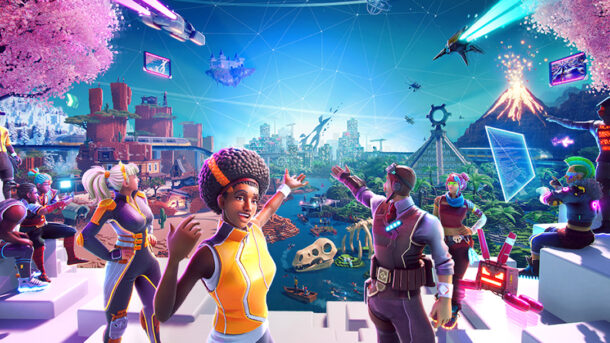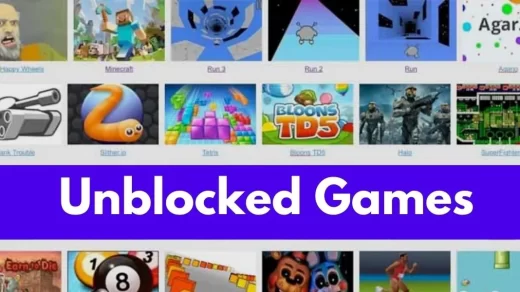For utmost of this time, Facebook has been talking about its plans for the metaverse, pledging to lose a lot of plutocrat in order to bolster its intentions in the space. History, the company blazoned that it would rebrand its commercial identity to “ Meta” in order to double down on this commitment. (And, you know, the other reason.) The metaverse, as Meta describes it, “ is a new phase of connected virtual gests using technologies like virtual and stoked reality.” Given the number of companies who are now starting to talk about the metaverse in veritably real terms, we’ve to answer one, veritably egregious question What the Hell is a metaverse?
.
Everything that follows is, to a certain extent, meant to be read with the right number of ahs, ahems, polite coughs and other caveats. After all, a number of companies have started using the term in order to lounge in the reflected glory thrown out by the metaverse hype train. Important like “ Web2.0,” “ The metaverse” has a loosey-dithery description that’s being used to define whatever is coming next for the internet. A virtual world that glasses our own? Metaverse. A way to buy and vend NFTs of Elon Musk dressed as a canine? Metaverse. A new way of creating commerce and dispatches? Metaverse. It’s likely that when we look back at the metaverse a decade or two from now, should it actually be, it ’ll look extensively different to what its boosters prognosticate In his Authors Letter, CEO Mark Zuckerberg describes the metaverse as “ an embodied internet where you ’re in the experience, not just looking at it.” He goes on to talk about how “ in this future, you’ll be suitable to teleport incontinently as a hologram to be at the office without a commute, at a musicale with musketeers, or in your parents’ living room to catch up.” And also cites the benefits of that, including a reduced carbon footmark and lower time stuck in business.
The easiest and most egregious point of comparison is the metaverse as represented in pop culture. Neal Stephenson’s Snow Crash (where the term originates), Ernest Cline’s Ready Player One and the Wachowskis’The Matrix are all exemplifications of this virtual, digital- world-that- actually- glasses-our-own. Those with (long) internet recollections will recall systems like Second Life, which promised to do this kind of thing 18 times agone. And some folks have suggested that Roblox and Fortnite, which are both games and virtual spaces where stuff other than games takes place, are forms of metaverse.
Meta’s interest is clear as a way of erecting out its work in the virtual space through its accession of Oculus. Sir Nick Clegg, who after his political defenestration and inexplainable Knighting came Facebook’s vice chairman of Global Affairs and Dispatches in 2018, wrote that the metaverse is designed to produce a “ lesser sense of‘virtual presence. ’” The Guardian reported that Clegg claims to use Meta’s virtual presence service, Horizon Manufactories, to take his “ Monday morning meetings in the metaverse with a virtual table and whiteboard.” You may be allowing, also, that the metaverse will be little further than Drone but with a demand to spend further to enjoy some precious VR gear.
Alexandru Voica, Meta’s Technology Dispatches Manager in Europe, says that a better way to understand the metaverse is as “ the coming elaboration of the internet.” He used the videotape call we were on as an illustration of commodity that the metaverse could hopefully ameliorate. “ We ’re meeting in this 2D videotape call, and it’s great compared to a phone call but it’s not as good as if we were sitting together (in the real world),” he said, “ The idea is, how can you take this commerce and get it as near to you and I being together (in a public space).” He added that the metaverse was n’t envisaged as displacing real- world connections, but to make virtual gests more naturalistic.
Voica added that these virtual engagements will feel a lot further real with the use of technologies like VR, AR and spatial audio. When you have a series of boxes on a Drone screen, for case, it’s harder for your brain to reuse all of that information at formerly. In the virtual world, with people’s audio directed toward you from wherever their icon is sitting, it’s easier for you to engage.
Some of this feeds back to Mark Zuckerberg’s‘ Coming Decade’ fiat from the launch of 2020, where advancements in AR and VR technology will more empower remote work. Obviously that was before COVID-19 made remote work a necessity for millions of people, and before it came one of the defining culture- warnon-issues this time.
Another common frame of reference is Matthew Ball’s essay on what a metaverse is from January 2020. At the time, he said that any metaverse would be a patient and coetaneous virtual terrain with its own frugality. Ball added that the metaverse would enable “ would- be sloggers” to “ share in the‘ high value’ frugality via virtual labor.” He cited the practice of Gold Farming — where players of a large MMO in a low- paycheck country works for hours to earn large quantities of virtual currency (or goods) which they also vend on to other players for real- world cash — as a current illustration of this “ virtual labor.”
SUN VALLEY, IDAHO-JULY 08 CEO of Facebook Mark Zuckerberg walks to lunch following a session at the Allen & Company Sun Valley Conference on July 08, 2021 in Sun Valley, Idaho. After a time hiatus due to the COVID-19 epidemic, the world’s most fat and important businesspeople from the media, finance, and technology worlds will meet at the Sun Valley Resort for the exclusive week-long conference. ( Print by Kevin Dietsch/ Getty Images) Kevin Dietsch via Getty Images Ball went on to say that the metaverse would also offer “ unknown interoperability of data.” A stoner would be suitable to move objects freely between worlds, like being suitable to take a skin for a gun inCounter-Strike and carry it over to Fortnite. To be honest, the idea that games publishers would agree to the free-sharing of their intellectual property, with all the misplaced gains that would number, is the most unthinkable idea in the document.
But indeed Epic Games’CEO Tim Sweeney is open to the idea of somecross-communication in some form or another. This July, Sweeney told The New York Times that a “ lair” could live between, in this illustration, the virtual worlds of Roblox and Fortnite. What’s not clear, still, is what a stoner could take from one end of that lair to the other beyond their own, custom- designed icon Voica says that thiscross-sharing of IP will be vital to icing the success of the metaverse. He used the illustration of a stoner buying a developer jacket, as a digital item which could be worn by their icon as they went about their day. That item does n’t have any value if you ’re only suitable to wear it in the specific developer’s own virtual world. “ It would be like buying a Manchester United shirt and only being suitable to wear it inside Manchester United’s colosseum,” he said. And he believes that consumers would n’t buy into a system with such a limitation, saying that “ people do n’t want to be locked in.”
There’s also a line of allowing that a metaverse will actually describe the junction of the digital and real worlds. AR spectacles that overlay a rich data set onto the road as you go about your day, outsourcing tasks from your own brain. That will, naturally, bear smart spectacles with transparent displays able of actually reproducing this data in a useful manner. Not to mention a amount vault in computer vision, data processing and battery life to make it feasible for whole- day use. This, of course, will also bear a dramatic shift in how we view sequestration in public and private spaces a decade on from the sequestration expostulations raised when Google Glass was compactly en vogue.
This September, The Washington Post canvassed Sima Sistani, theco-founder of Houseparty who now works for Epic Games. They said that the metaverse would be the thing that replaces Social Media to stink down all of our free time. Sistani believes that, unlike now, where people simply produce images and post status updates, the coming generation will enjoy cooperative gests with one another. And that the coming generation of content generators will produce fresh gests for the rest of us to enjoy, once we ’ve paid for them.
One of the effects that’s kinda/ sorta clear, at least from the metaverse’s boosters, is that the platform wo n’t be possessed by a single person or company. Rather, it’ll — hopefully — operate much like the internet does now, with multiple providers offering structure to make a cohesive total. Or at least, that’s the proposition, and there’s the fresh stopgap that decentralized technologies will help reduce the eventuality for a single arbitrator to rule over this new frontier.
Systems like Decentraland, its own virtual terrain, are formerly working on this principle, with its frugality running on Ethereum’s blockchain. As The New York Times reported before this time, Decentraland’s request has formerly seen real- world brokers buying up parcels of virtual real estate. And there are formerly art shows and pavilions in operation inside Decentraland, all of which can be tied to some form of digital commerce. This is sorely at-odds with the eventuality for apost-scarcity digital Cockaigne that a metaverse could theoretically foster Pop- culture descriptions of metaverses generally present them less as a social good and more as a symptom of brewing collapse. Indeed the reference onanism that’s Ready Player One shows a world that has slid into profitable, social and environmental decline. When asked about the metaverse, Snapchat CEO Evan Spiegel cited Snow Crash’s “ virtual world created by an evil monopolist.” Not long after, Twitter CEO Jack Dorsey agreed that Neal Stephenson’s novel was intended as a warning, rather than a companion. (An away, in Snow Crash, poor druggies penetrating the metaverse through a public outstation are rendered in snap, and are scouted by the wider society as a consequence — commodity that was replicated in the real- world by Fortnite players who bullied “ Dereliction” players who did n’t buy custom skins for their incorporations.)
Now, Meta believes enough in the metaverse that it’s hoisted its flag, and fortune, to the idea for the coming many times. And it’s hard to suppose that, still accessible, its metaversal intentions are a smokescreen for the veritably real issues the platform is presently facing. Titles like Roblox and Fortnite give a vague sense of how a patient, universal online world could hold the attention of druggies for thousands of hours, but those are for now curated gests. And systems like Decentraland offer a hint as to how a virtual frugality would serve, but nothing yet gives us a cohesive grand narrative of the metaverse which can show us where it’s going. In numerous ways, companies like Meta are trying to put together this jigsaw without important of an idea of what it’s going to look like when it’s finished.




